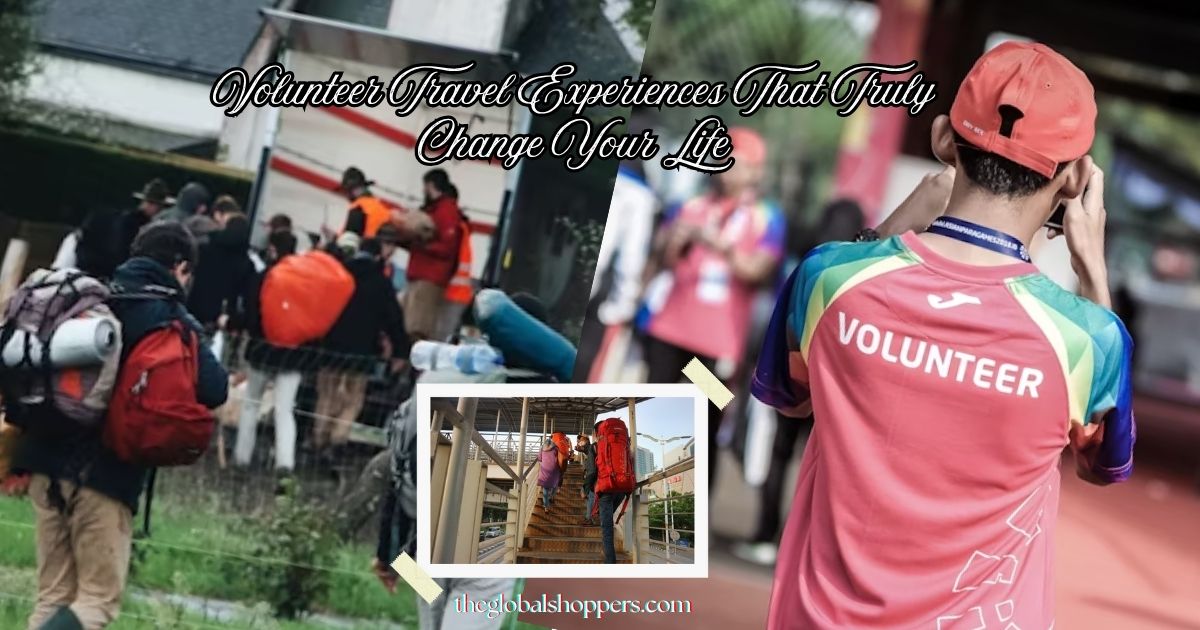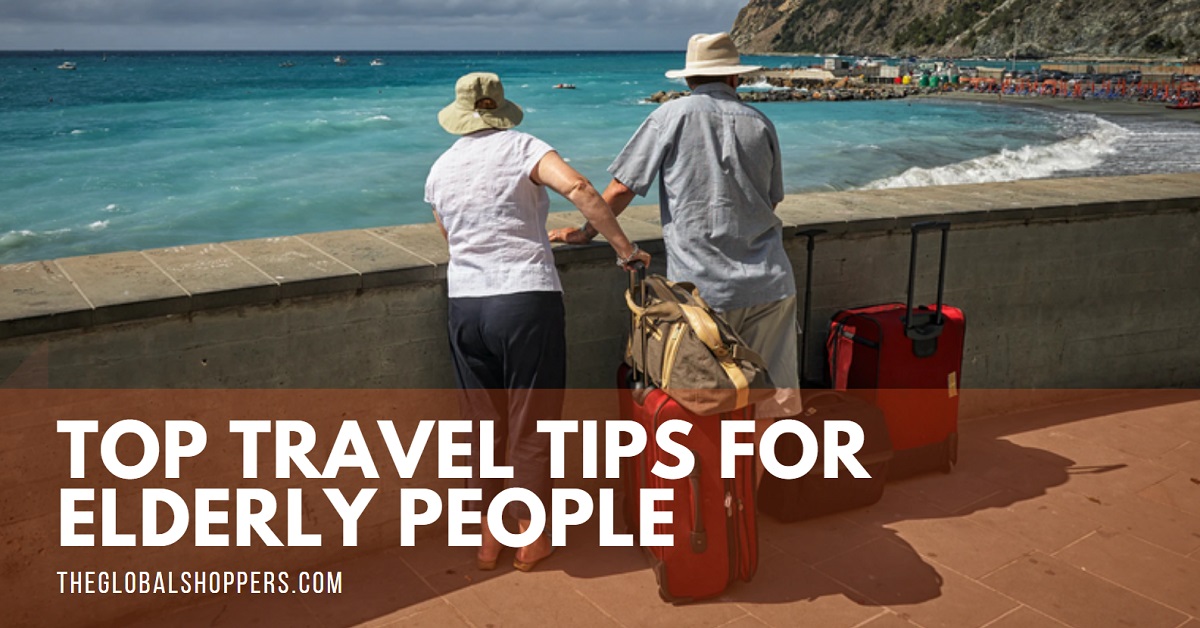Travel is often synonymous with exploration, leisure, and adventure. For those seeking a deeper connection with the places they visit, volunteer travel offers a unique opportunity to make a tangible impact while experiencing the world. Volunteer travel, also known as voluntourism, combines the transformative power of travel with meaningful service projects, enabling travelers to contribute to community development, environmental conservation, and global initiatives while immersing themselves in local cultures. Whether you are passionate about education, wildlife conservation, healthcare, or community development, volunteer travel offers experiences that extend far beyond sightseeing.
[wp_GAM_ADS_InPost1_shortcode]
Understanding Volunteer Travel
Volunteer travel combines tourism with volunteering, offering travelers the opportunity to participate in organized projects in various countries. These opportunities range from short-term engagements, such as a week-long marine conservation program, to long-term placements lasting several months, such as teaching English in rural schools. Volunteer travel is designed to foster cultural exchange, community development, and personal growth, offering benefits not only to the communities served but also to the travelers themselves. Participants gain new skills, build global networks, and often return home with a renewed sense of purpose.
One key aspect of volunteer travel is selecting a reputable organization. Many programs partner with local nonprofits, schools, hospitals, or environmental organizations to ensure that projects are sustainable and culturally respectful. Prospective volunteers should research the mission, impact, and logistics of each program, including accommodation, meals, and safety considerations. Transparent communication and ethical engagement are crucial to prevent “voluntourism” from inadvertently harming communities or exploiting vulnerable populations.
Types of Volunteer Travel Opportunities
Volunteer travel opportunities are diverse, catering to a wide array of interests, skills, and durations. Here are some of the most popular types:
1. Education and Teaching Programs
Many volunteer travelers choose to teach English, mathematics, or computer skills in schools or community centers abroad. Countries in Southeast Asia, Africa, and Latin America often welcome volunteers to assist with literacy programs, after-school activities, or educational workshops. Teaching volunteers gain firsthand insight into local educational systems and help provide resources and mentorship to students who might otherwise have limited access to quality education.
2. Healthcare and Medical Volunteering
Medical volunteering opportunities allow healthcare professionals, students, and trained volunteers to contribute to clinics, hospitals, and community health programs. Tasks can range from providing basic health education to assisting in vaccination drives or supporting maternal and child health initiatives. These programs are particularly impactful in regions where access to medical care is limited, providing a practical way to make a difference while learning about global health challenges.
3. Environmental Conservation
For travelers passionate about sustainability, conservation projects offer an opportunity to protect wildlife, restore ecosystems, and promote environmental awareness. Volunteers may work in wildlife sanctuaries, reforestation programs, coral reef restoration projects, or sustainable agriculture initiatives. These projects often involve physical labor and long hours outdoors, but offer a rewarding chance to see the immediate impact of one’s efforts on fragile ecosystems.
4. Community Development
Community development volunteering focuses on improving the livelihoods of underserved populations. Volunteers may assist in constructing schools, building water systems, supporting small businesses, or facilitating skills training programs. These initiatives often require collaboration with local communities to address their most pressing needs, promoting empowerment and long-term sustainability.
5. Disaster Relief and Humanitarian Aid
Some volunteer programs focus on supporting communities affected by natural disasters, such as earthquakes, floods, or hurricanes. Volunteers assist with rebuilding infrastructure, distributing supplies, and providing emotional support to affected populations. While these programs can be physically and emotionally challenging, they offer a profound sense of purpose and the opportunity to witness the resilience of communities firsthand.
Benefits of Volunteer Travel
Volunteer travel is more than just a way to explore new destinations—it is a transformative experience that impacts both the traveler and the communities they serve. The benefits extend far beyond the immediate outcomes of the volunteer work, shaping perspectives, skills, and personal growth in profound ways.
Cultural Immersion: One of the most enriching aspects of volunteer travel is the opportunity to live and work closely with local communities. Unlike conventional tourism, which often offers a superficial glimpse into a destination, volunteering allows travelers to experience daily life, customs, and traditions firsthand. By participating in local festivals, sharing meals with host families, or assisting in community projects, volunteers gain an authentic understanding of the culture that cannot be achieved from a hotel or guided tour alone. This deep immersion often leads to lasting friendships and a genuine appreciation of cultural diversity.
Skill Development: Volunteer travel is a practical learning experience that equips participants with transferable skills highly valued in both personal and professional contexts. For example, managing a community project or coordinating activities in a school setting can improve leadership, teamwork, and problem-solving abilities. Volunteers also develop communication and cross-cultural skills by navigating language barriers, cultural differences, and collaborative tasks. These skills enhance adaptability and resilience, making volunteers more versatile in future endeavors, whether in career or life challenges.
Personal Growth: Engaging in meaningful volunteer work fosters empathy, self-awareness, and emotional resilience. Being exposed to different social realities and witnessing firsthand the challenges faced by underserved communities encourages volunteers to reflect on their own lives and the privileges they hold. The experience cultivates compassion, patience, and a stron ger sense of purpose, leaving travelers with a broadened worldview and a renewed sense of responsibility toward global issues.
[wp_GAM_ADS_InPost2_shortcode]
Global Networking: Volunteer travel connects individuals to a diverse network of people, including fellow travelers, local leaders, nonprofit organizations, and community members. These connections often lead to lifelong friendships, professional collaborations, or mentorship opportunities. The shared commitment to service fosters a sense of camaraderie and collective achievement, enriching the volunteer experience.
Travel with Purpose: Perhaps the most compelling benefit is the sense of purpose that volunteer travel brings to the exploration experience. Unlike traditional tourism, which primarily focuses on personal enjoyment, volunteer travel allows participants to make meaningful contributions to the communities they visit. The knowledge that one’s efforts are making a positive impact adds depth and fulfillment to the travel experience, creating memories that are both rewarding and transformative.
Choosing the Right Volunteer Program
Selecting the right volunteer program is critical to ensure that your experience is safe, meaningful, and impactful. With numerous options available, careful consideration of several key factors can help you make the best choice.
Legitimacy and Impact: Start by researching the organization’s mission, reputation, and measurable project outcomes. Look for transparency in how funds are used, testimonials from previous volunteers, and evidence of long-term community benefits. Programs that prioritize ethical engagement and sustainability over volunteer convenience are the ones most likely to create a genuine positive impact.
Duration and Commitment: Volunteer opportunities can range from short-term experiences of one to two weeks to long-term placements of several months or more. Consider your availability, energy, and personal goals when choosing the duration. Short-term projects are ideal for those with limited time, yet still offer meaningful engagement. At the same time, longer programs provide deeper immersion and the opportunity to see tangible results from your efforts.
Location and Safety: Safety is paramount when selecting a program. Evaluate the destination in terms of political stability, accessibility, healthcare infrastructure, and climate conditions. Check official travel advisories, ensure necessary vaccinations are up to date, and familiarize yourself with the local laws and customs. Choosing a program that prioritizes volunteer safety, including providing secure accommodation and reliable transportation, is essential.
Skills and Interests: Align your personal skills, experience, and interests with the program’s needs. For instance, volunteers with teaching or medical expertise can take on specialized roles, while others may contribute to general community support, conservation efforts, or construction projects. Being honest about your abilities ensures you are assigned tasks where you can make a real difference and enjoy a fulfilling experience.
Cost and Funding: Many volunteer programs charge fees to cover accommodation, meals, training, and project expenses. It’s essential to understand the breakdown of costs and what your fees support. Some programs offer scholarships, grants, or fundraising assistance, making volunteer travel more accessible. Planning and budgeting ahead can ensure your experience is financially sustainable and stress-free.
Ethical Considerations in Volunteer Travel
Volunteer travel can be an enriching experience, but ethical considerations are crucial to ensure that the work benefits communities rather than unintentionally causing harm. Programs that prioritize the volunteer’s comfort or personal enrichment over the genuine needs of the community should be approached with caution. Examples include orphanage tourism, which can exploit vulnerable children, or initiatives that assign untrained volunteers to tasks requiring professional expertise, potentially creating more problems than solutions.
[wp_GAM_ADS_InPost3_shortcode]
A responsible approach to volunteer travel emphasizes the importance of local voices in decision-making. Communities should have ownership of the projects, guiding volunteers on where help is most needed and how it should be implemented. Programs that collaborate closely with local leaders, organizations, and beneficiaries tend to have longer-lasting and more meaningful impacts. Ethical volunteering also requires sustainability, ensuring that initiatives support the community’s long-term development rather than fostering dependency.
Respect for local culture, traditions, and social norms is essential, as is openness to mutual learning, where both volunteers and community members gain understanding and growth from the experience. When these principles are prioritized, volunteer travel becomes a genuinely positive and respectful exchange, leaving a lasting benefit for both the host community and the individuals involved.
Exploration Beyond Sight
Volunteer travel represents a transformative approach to exploration, where journeys are enriched through service, learning, and meaningful connection. Ethical programs that match skills and interests enable a tangible impact, foster cultural understanding, and encourage personal growth beyond what conventional tourism typically provides. Activities such as teaching in Cambodia, restoring coral reefs in the Caribbean, or supporting healthcare initiatives in Africa turn travel into purposeful and compassionate engagement. The essence of exploration is not just about witnessing the world, but also about contributing to its improvement.









